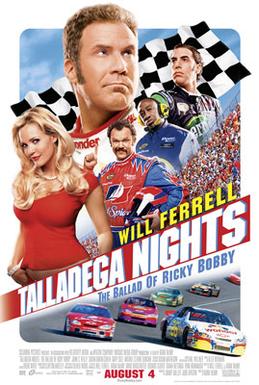Nominated for Best Documentary Feature

Well, this is certainly the longest documentary I've ever watched for the Oscars. I don't know if that's how it aired at Sundance (it has to have played in a theater for at least a week to qualify for a nomination) but on my TV, it was a 5-part miniseries with each segment clocking in at an hour and a half. That's seven and a half hours total, if you're counting. That is a lot of time to spend on O.J. Simpson.
I wasn't even mad about it, though, because it really is an excellent documentary. I was never one for the sports and I was in junior high when the trial was going on, so you could say my O.J. experience was fairly limited. I certainly hadn't connected it to the riots that occurred in L.A. over a series of police excesses and abuses of power.
In case you were living under a rock or not born until 1995, let me run down the history of O.J. for you. O.J. Simpson started out as a college football superstar in the 1980s in southern California. He was signed professionally by the Buffalo Bills and had a rough couple of years until their management changed. Then he pretty much single-handedly turned the team around. Having had a taste of obscurity during those dark times, O.J. started courting other career options, cultivating relationships in entertainment and corporate sponsors. He became the face of a national Hertz car rental campaign, and parlayed that into a full-blown career as a spokesman, then an actor, appearing in several movies, including the
Naked Gun franchise. Along the way, he divorced his first wife and married Nicole Brown. Some years later, Nicole filed for divorce alleging physical abuse. In 1994, Nicole and a waiter from a nearby restaurant, Ron Goldman, were murdered outside her house. O.J. was arrested after a bizarre low-speed chase and went to trial. He hired the Johnnie Cochran firm to represent him, and they proceeded to wipe the floor with the prosecution, securing an acquittal for their client. The Goldman family retried the case in civil court and got a guilty verdict, which required O.J. to pay $33 million is damages. Which wouldn't have been a problem back in his heyday, but with the turn of public opinion against him, was a little harder to manage. In 2007, O.J. and a bunch of cronies were arrested in Las Vegas after (again) a bizarre robbery/kidnapping involving boxes of sports memorabilia. He was sentenced to 33 years in prison.
Okay, now that we've gotten all the background out of the way, let's talk about the documentary itself. Not only does it have exhaustive interviews with his friends, co-workers, sponsors, and lawyers, it also talks to members of both the Brown and Goldman families. It presents background information about the Rodney King trial, the Watts riots, and several other (we'll politely call them) conflicts between the LAPD and predominantly African-American residents in South Central L.A. It presents a portrait of O.J. as a charming manipulator and opportunist, concerned more with his personal fame than any social issue. Several people remarked that he went out of his way to avoid being considered "black," using his popularity to cultivate relationships with powerful white men for his own personal gain. His divorce from his first wife, a black woman, to marry Nicole Brown, a white one, seemed to cement his place in society in his eyes. During his trial, his $50,000/day legal team turned the case from a mountain of physical and circumstantial evidence into a treatise on race relations, painting O.J. as another black American being unfairly treated and even framed by the predominantly white LAPD. The prosecution did their best, but the trial came down to which side the jury liked better and also the chance to settle some old scores. A couple of jurors admitted that they voted to acquit not based on evidence but as deferred justice for Rodney King.
In hindsight, this is less about O.J. as a black man in a white society as it is a triumph for rich people against the system. Do you think there would have been as much furor over this case if he hadn't been represented by one of the best and most expensive lawyers in the country? Would the verdict have been the same without the expert handling of the jury and manipulation of the witnesses and prosecution by the defense? Do you think the penalty would have been as high in the civil case if it hadn't been held in a predominantly white area? Was his 2008 sentencing a backlash for what white Americans saw as a travesty of justice?
I'm not a sociologist, I'm an English major, so I can't give you statistics or studies done on institutionalized racism, but all you have to do is look at the Freddie Gray or Ferguson, Missouri trials to know that not only is it a thing, it's still happening. This would be the part where I have some sort of epiphany, or hopeful speech prepared as a beacon in the darkness, but I'm not that clever or well-informed, I'm afraid. I don't have any answers or solutions and it would be hopelessly naive at best and arrogant AF at worst of me to suggest that I do, in fact, have any clue what it's like to be black in America.
 Okay, so the Oscars are in about 15 minutes and I have seen almost none of the nominees. I knew this was going to be an off year, but holy crap. I think I only saw 16 out of around 54. That is not a good percentage. My plan was to watch a couple more today but I went to a brunch that turned into an eight-hour drinking session.
Okay, so the Oscars are in about 15 minutes and I have seen almost none of the nominees. I knew this was going to be an off year, but holy crap. I think I only saw 16 out of around 54. That is not a good percentage. My plan was to watch a couple more today but I went to a brunch that turned into an eight-hour drinking session.
 The tagline for this film (which is very small because every poster I looked at was for the Extremis story arc of Iron Man) says "Between science and faith lies the ultimate choice" and it's a little misleading, I think. I didn't get that sense from the film, but that might be because I'm not a terribly religious person.
The tagline for this film (which is very small because every poster I looked at was for the Extremis story arc of Iron Man) says "Between science and faith lies the ultimate choice" and it's a little misleading, I think. I didn't get that sense from the film, but that might be because I'm not a terribly religious person. Film education continues, just with a different part of the Axis powers. (No, we didn't watch this in my film class, but how was I supposed to pass up that joke?)
Film education continues, just with a different part of the Axis powers. (No, we didn't watch this in my film class, but how was I supposed to pass up that joke?)

 Hey, it's a German film that's not a repost! Rejoice! I had never seen this one before class last Thursday, but it's on YouTube in its entirety with English subtitles if you want to check it out. That's how we watched it and it was fine. It is black and white but this one has sound, the first one in our class to have such.
Hey, it's a German film that's not a repost! Rejoice! I had never seen this one before class last Thursday, but it's on YouTube in its entirety with English subtitles if you want to check it out. That's how we watched it and it was fine. It is black and white but this one has sound, the first one in our class to have such. I like to think that I'm a relatively intelligent woman. And then I go off and do stupid things to myself, like watching Talladega Nights. Even though I hate Will Ferrell's style of comedy. Even though I hate NASCAR. Hell, I don't even like the state of Alabama and I'm from there.
I like to think that I'm a relatively intelligent woman. And then I go off and do stupid things to myself, like watching Talladega Nights. Even though I hate Will Ferrell's style of comedy. Even though I hate NASCAR. Hell, I don't even like the state of Alabama and I'm from there. 
 This was a really cute film. Light and fluffy, very sweet, and a nice counterbalance to the dark, depressing usual Oscar fare.
This was a really cute film. Light and fluffy, very sweet, and a nice counterbalance to the dark, depressing usual Oscar fare.  Ugh, this was such a good movie! Laika is one of those film companies that has not put a single step wrong, as far as I'm concerned. Their stop-motion is some of the most beautiful and seamless I have ever seen, a fact that has been recognized by their nomination for Best Visual Effects, putting it in the same rarefied air as The Nightmare Before Christmas.
Ugh, this was such a good movie! Laika is one of those film companies that has not put a single step wrong, as far as I'm concerned. Their stop-motion is some of the most beautiful and seamless I have ever seen, a fact that has been recognized by their nomination for Best Visual Effects, putting it in the same rarefied air as The Nightmare Before Christmas. 

 Movies like this are why I have a "meh" tag. Like, it's not good by any stretch of the imagination, but it's not so bad that I want to kill it with fire. It just sort of exists.
Movies like this are why I have a "meh" tag. Like, it's not good by any stretch of the imagination, but it's not so bad that I want to kill it with fire. It just sort of exists.  This was an interesting film, not just because of the amazing advances in technology since the 60s which allowed this to be live-action* but also because of the shift in message of the new version. More on that in a minute.
This was an interesting film, not just because of the amazing advances in technology since the 60s which allowed this to be live-action* but also because of the shift in message of the new version. More on that in a minute. Hey, remember this movie? Me either! You kids today may not know this, but back in the late 90s-early 00s, we were terrified of technology. Between Y2K and this new-fangled thing called "hacking" people were simultaneously intrigued and scared shitless. And that has been History with Lucy. You're welcome.
Hey, remember this movie? Me either! You kids today may not know this, but back in the late 90s-early 00s, we were terrified of technology. Between Y2K and this new-fangled thing called "hacking" people were simultaneously intrigued and scared shitless. And that has been History with Lucy. You're welcome. Holy God, this was a weird movie. When I was a little kid, I remember seeing Pee-Wee's Playhouse on TV but I don't remember watching it regularly. Then Paul Reubens had a major scandal and the world essentially forgot he existed. Some artifacts remain, like this film.
Holy God, this was a weird movie. When I was a little kid, I remember seeing Pee-Wee's Playhouse on TV but I don't remember watching it regularly. Then Paul Reubens had a major scandal and the world essentially forgot he existed. Some artifacts remain, like this film.